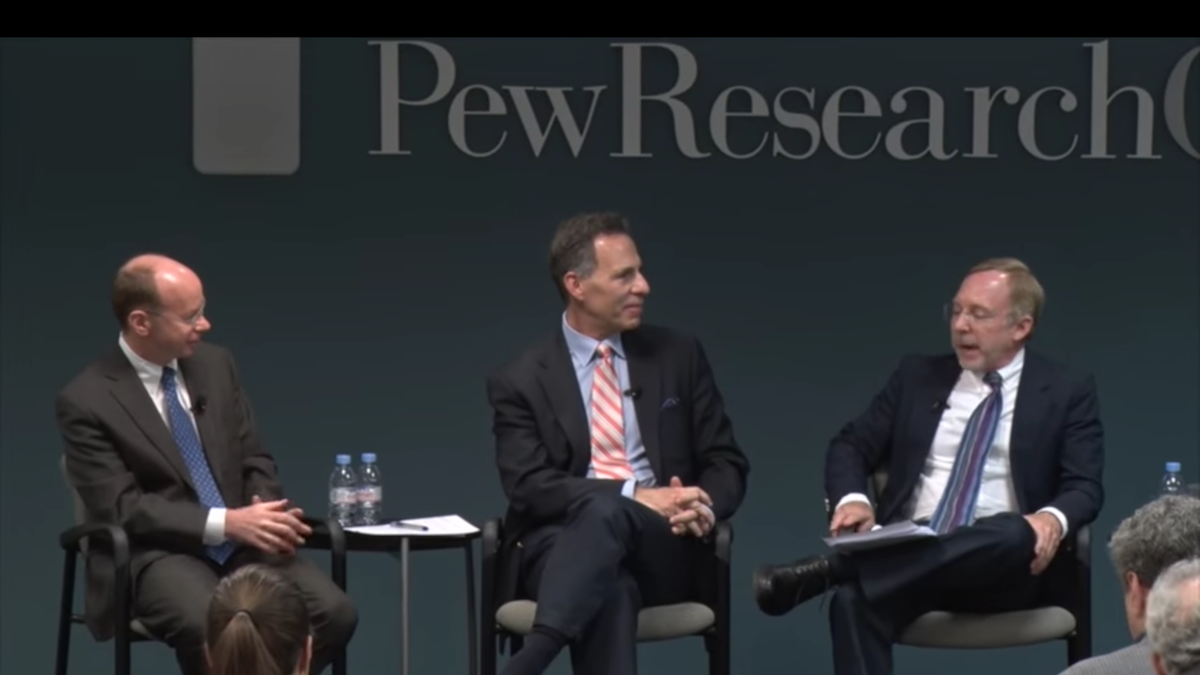
-
HOME
-
WHAT IS STANDOur Mission Our Values Our Help Contact
-
WHAT WE FIGHT FORReligious Freedom Religious Literacy Equality & Human Rights Inclusion & Respect Free Speech Responsible Journalism Corporate Accountability
-
RESOURCESExpert Studies Landmark Decisions White Papers FAQs David Miscavige Religious Freedom Resource Center Freedom of Religion & Human Rights Topic Index Priest-Penitent Privilege Islamophobia
-
HATE MONITORBiased Media Propagandists Hatemongers False Experts Hate Monitor Blog
-
NEWSROOMNews Media Watch Videos Blog
-
TAKE ACTIONCombat Hate & Discrimination Champion Freedom of Religion Demand Accountability
Are We Losing Religion?
I received a letter from a distant relative. Her husband had passed away, her daughter was seriously ill, her nephew had recently died from an overdose, and yet her first words were to inquire as to whether I’d enjoyed Christmas.
That—understandably—gave me pause for thought.
Christmas is a very Christian celebration. It marks the birth of Christ, and alongside Easter is the most significant date in the Christian calendar. But it has to be said that a contemporary survey of the British population—and this may go for the United States and other countries where Christianity is a prominent faith—might highlight the fact that Christmas today has very little, if anything, to do with the birth of Christ.
Attendance at the Church of England is down to 780,000 and is falling by 20,000 a year. The percentage of the population describing itself as having no religion in the broadest sense rose from 31.4 percent to 50.6 percent from 1983 to 2013.
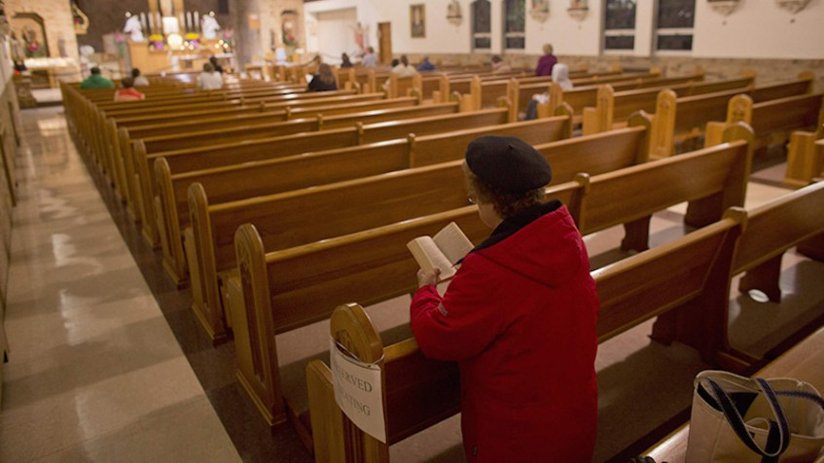
This is England. The Church of England is our primary church, and yet merely 1.1 percent of the population recognises that church with sufficient commitment to attend, even on such a day as Christmas.
As a child, I attended a boarding school and was required to go to church six days a week. Half an hour on weekdays, an hour and a half on Sunday. We were excused church on Saturday. When I was home from school, I was sent to Sunday School by my maternal grandmother. I certainly didn’t maintain such dutiful church attendance once I left school, but there were many life lessons it taught me that I believe have stayed with me to this day. I very clearly recall a great emphasis on the need to be as kind as one can be, as tolerant as possible with everyone, no matter their race, colour or religious belief. Patience was highly recommended. Honesty was paramount in all things.
If we look at the word “religion”, we find a very interesting etymology.
Middle English (originally in the sense ‘life under monastic vows’): from Old French, or from Latin religio(n-) “obligation, bond, reverence”, perhaps based on Latin religare “to bind”.
To bind can mean many things. To tie together. To bring together as one. To commit. To cause to have an emotional attachment.
With the internet, we are losing a sense of ourselves. I do not have internet on my mobile telephone. I never have, and I don’t believe I ever will.
Looking at it from this perspective, I ask myself whether the apparent dissolution of a strong religious orientation in a community, a society, even a country, is not so much a symptom of a diminishing sense of faith, but a diminishing sense of togetherness.
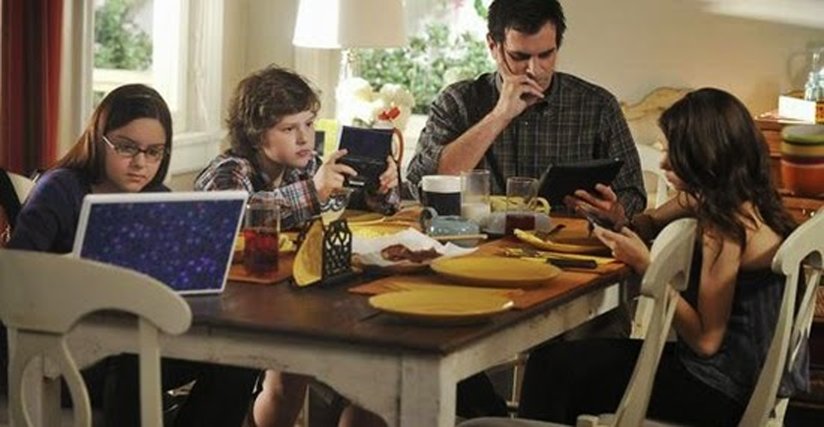
With the internet, we are losing a sense of ourselves. I do not have internet on my mobile telephone. I never have, and I don’t believe I ever will. I remember when mobile phones did not exist. We made agreements with our friends to meet somewhere at a given time, and we kept those agreements. We did not send a text apologising for our inability to meet the commitment. I believe—and accept that this may be influenced by nostalgic rose-tinted spectacles—that we communicated far more and far better when we did not have mobile phones. It seems ironic, perhaps only to me, that the great advancements in “communication” have done more to drive us out of actual communication than anything else I can think of.
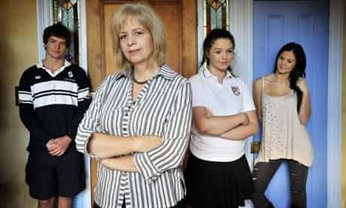
You cannot halt progress. Of course not. I have no wish to. Perhaps I am a Luddite at heart, but I am not so naive as to imagine that we could all agree to throw our phones into the compactor and disconnect our lives from Facebook and Twitter and Instagram. Having said that, it would be an interesting exercise. American author and journalist Susan Maushart imposed such a lifestyle on her family for six months, subsequently publishing a book called The Winter of Our Disconnect. The Daily Telegraph said the story was “a channel to a wider view into the impact of new media on the lives of families, into the very heart of the meaning of home.”
According to a wide-ranging survey by Pew Internet & American Life Project in 2007, 93 percent of teenagers are online. Three-quarters own an iPod or MP3 player, 60 percent have their own computer and 71 percent a cellphone. That data is now a decade old. Those figures can only have jumped upward markedly. The Kaiser Family Foundation did a similar survey a couple of years before and found that children were simultaneously using numerous electronic devices “most of the time”. The average American teenager spends eight and a half hours a day engaged in some form of mass-mediated interaction. That's more than the number of hours spent sleeping or attending school lessons.
Home is where the heart is. Home is where we began, and always we find some thread that binds us to it, pulling us ever back.
So, what did Ms. Maushart discover when she enforced a six-month disconnection from all those electronic devices upon which her family so heavily relied? According to her own reports, “boredom” rapidly led to a far-reaching discovery of one another and the world around them. The family room was “no longer a series of separate docking stations”, but a place where the family actually gathered. Family meals were routine, as were family conversations. One son—freed from his video game addiction—rediscovered a love for music and excelled at the saxophone. The youngest daughter slept properly, relieved of the need to update her Facebook status at four in the morning. The kids started reading actual books instead of bite-sized pieces of random information from the web. Maushart said that the whole family “discovered a renewed sense of agency”, which was perhaps the very thing she was hoping to achieve by her bold undertaking. She wanted to remind her family that they were a family, that they each bore a responsibility to work together toward common goals that were beneficial for the family and the home.
Home is where the heart is. Home is where we began, and always we find some thread that binds us to it, pulling us ever back. As George Moore said, “A man travels the world over in search of what he needs and returns home to find it.”
Through history, church has been a kind of home. It has been a haven, a sanctuary, a place of respite and safety. Churches were very often built by donation and labour from the community itself. The church was a second home, a place to which we were spiritually bound, a place where we could congregate not only to worship, but to help one another solve the problems attendant to living itself.
Church is a fellowship. The word itself comes from the Greek kuriakon, meaning house.
The loss of faith, of religion, of church membership—and this goes for all faiths, all religions, all churches—is a loss of the most fundamental bind which has held communities and nations together for as long as Man has walked the Earth.
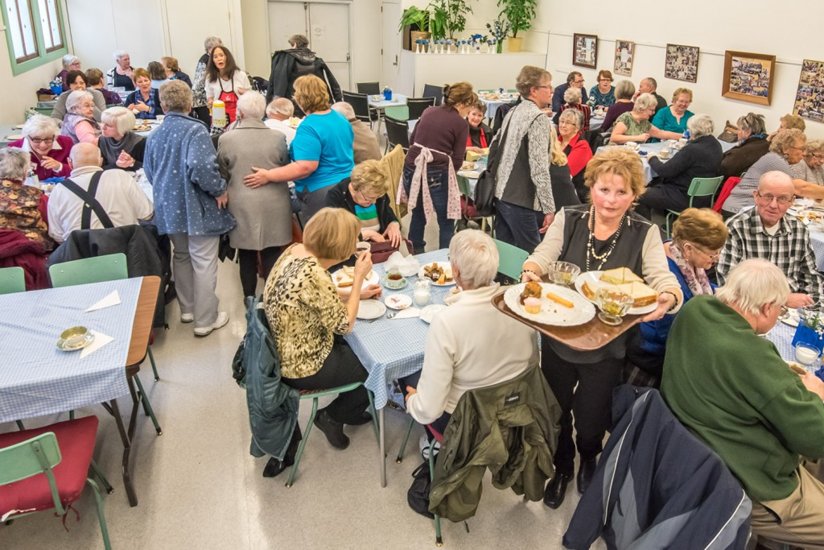
Church is a fellowship. The word itself comes from the Greek kuriakon, meaning “house.”
And so, in broad and objective terms, I cannot see this decline as anything other than a consequence of separation, disconnection, disassociation and differences.
We are not different. Our religion is a matter of choice.
But being part of the fellowship of Man is not.








